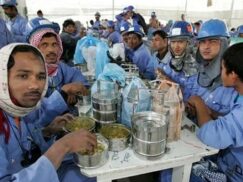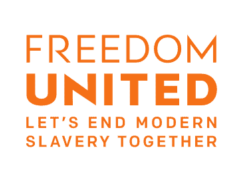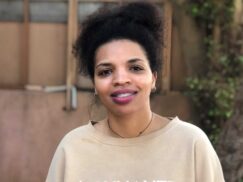UPDATES TO KAFALA
The definitive place to get the latest updates on Kafala.
Migrant workers in Lebanon have been hit hard by its multiple crises and half of them left jobless, the UN warned Wednesday, calling for voluntary returns to be scaled up.
Migrants living and working in Lebanon have been hit bad by the ongoing economic crisis, Covid-19 lockdowns, and the huge explosion in Beirut last year. Many want to go home, while some already have.
Horrific rights abuses against migrant domestic workers are being overshadowed amid an economic crisis in Lebanon We need your name - sign the open letter to Lebanon's Ministry of Labour calling for better protections for domestic workers.
The heat. The humidity. My first reaction when I arrived in the Middle East was the absolutely unbearable intensity of heat and humidity. ‘It’s 1 o’clock in the morning. How is it so hot’? My newfound Irish friend who I had met at the airport in Dublin laughed. ‘Didn’t I tell you? You’ll get used to it though. It’ll be grand (fine) by mid-October’. We soon had to part ways as she was getting a flight to Doha while I had to wait another two hours for my flight to Kuwait, my final destination and where I would be for the next 10 months. I moved to Kuwait in August 2014 with absolutely no idea what was ahead of me. I was armed with minimal knowledge of Kuwaiti, Arab and Islamic society and, for all intents and purposes, was moving blindly to the Middle East. I had been offered a job teaching in a school in Salmiya, Kuwait. I was put in touch with one of the current teachers, who told me about school life and so on. Even though I had months to prepare, I focused on the logistics of posting my passport to the Kuwaiti embassy in London, as there is none in Ireland. I had to get documents legalized, and then they had to be attested. I needed vaccines, the Kuwaiti embassy was a nightmare to deal with on the phone and everything just seemed to take ages. I never thought to research Kuwait bars coming to terms with the fact it was (and remains) a dry state. No alcohol. No pubs. No nightclubs.
In Lebanon, the pandemic struck at a time of social change and economic crisis, whereby the culture shifted towards overthrowing corrupt political leaders but forgot to take into account migrant workers—victims of several human rights violations.
President Duterte has sought the abolition of the kafala system to ensure the protection of overseas Filipinos workers (OFW) in the Middle East during his recent talk with Saudi Crown Prince and Deputy Prime Minister Mohammed Bin Salman Al Saud.
In an online press briefing, Presidential spokesman Harry Roque said this was among the highlights of a phone conversation between the two leaders last Wednesday.
THE MIGRANT advocacy network, Churches Witnessing With Migrants–Philippines praised Saudi Arabia for abolishing the “kafala system,” saying, it is a positive step that will protect Filipino and other migrants workers.
A church group in Manila welcomed the abolition of the so-called kafala system in the Kingdom of Saudi Arabia, describing the move as a “positive step for the protection of Filipino migrant workers.”
Berlin-based independent filmmaker Roser Corella started her career as video-journalist for Catalan television, but her interest in the human stories behind global issues moved her to self-produce and develop a personal vision within the documentary field. Her work has been worldwide and won numerous awards. “Machine Man,” “Prisoners of Kanun,” and “Grab and Run” are among her credits.
“Room Without a View” is screening at the 2021 Hot Docs Canadian International Documentary Film Festival, which takes place April 29-May 9. The fest is digital this year due to COVID-19. Streaming is geo-blocked to Canada.
Here’s the flour, when you came last week the piles of food were much bigger, you couldn’t even move, says Tsigereda Brihanu, who shows me around among the dry goods they keep in white sacks on the walls of their premises. Rice, white flour and red lentils. We help more than 45 people every day, she says. And it has become more difficult for us too, it is very expensive, she says.











